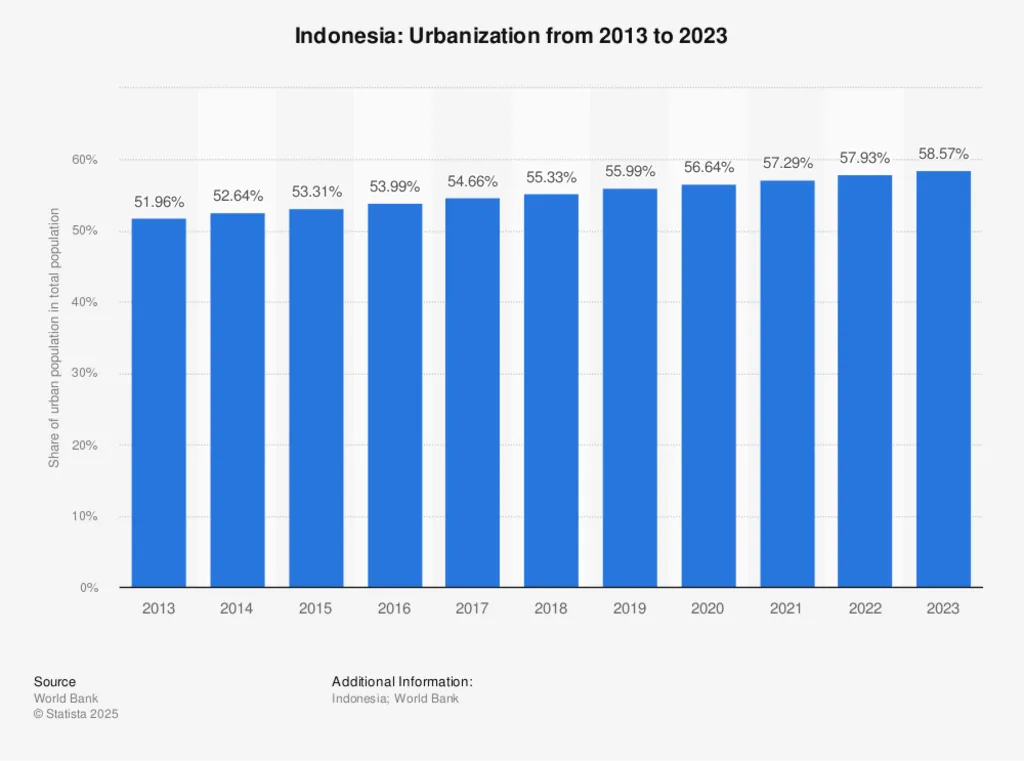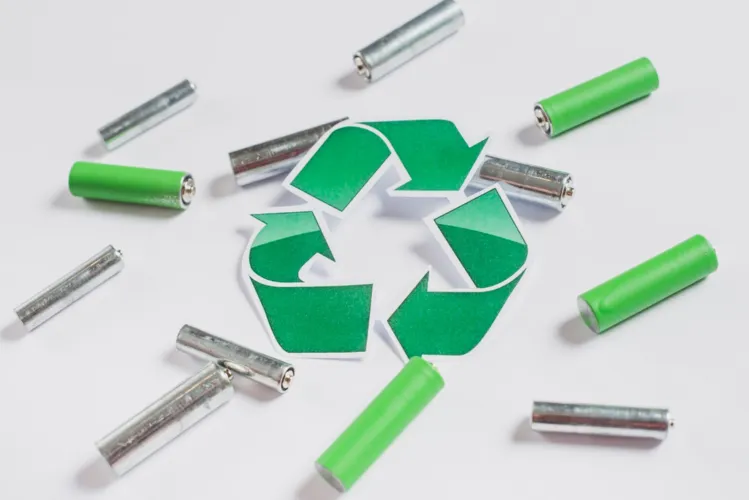Indonesia is urbanizing at a rapid pace. From 1975 to 2015, the urban population grew by 4.4% per year, with approximately 3.4 million people moving into cities annually. By 2025, around 67.5% of the population is expected to live in urban areas. Having a rapid growth creates both challenges and opportunities for Indonesia Urban Renewal Initiatives, so let's take a closer look!
Economic Growth Potential of Indonesia Urban Renewal Initiatives

Urbanization has the power to drive economic growth. When cities grow efficiently, they foster agglomeration economies, increasing productivity and job opportunities. Properly managed urban renewal projects can help Indonesia harness this potential by improving infrastructure and living conditions. For example, revitalizing older industrial zones into mixed-use commercial and residential areas can attract businesses, create jobs, and boost local economies.
Cities like Surabaya and Bandung have already seen success with such projects, transforming neglected areas into vibrant hubs of activity. By investing in urban renewal, Indonesia can create more sustainable cities that benefit both residents and businesses, while also positioning itself as a competitive player in the global economy.
Read Also: The Impact of Indonesia Urbanization Trends on Society
Addressing Housing Shortages
Jakarta faces a significant housing crisis, with an estimated 1.2 million housing units needed to meet demand. The lack of affordable housing pushes many low-income families into informal settlements with poor living conditions. Urban renewal projects aim to address this issue by constructing new housing units and upgrading slum areas. For instance, the Kampung Deret Program in Jakarta has transformed informal settlements into structured, livable neighborhoods with proper sanitation and access to utilities. These efforts not only improve quality of life but also provide safer, more sustainable homes for residents. Additionally, integrating affordable housing into urban renewal plans can help reduce inequality and ensure that economic growth benefits all segments of society.
Read Also: The Struggle of Indonesia Affordable Housing Challenges
Improving Quality of Life
Urban renewal projects have been shown to enhance quality of life significantly. Research from Brazil highlights how such initiatives lead to better neighborhoods, improved public spaces, and higher community satisfaction. Similar outcomes can be expected in Indonesia if urban renewal efforts are well-planned and executed. Take the revitalization of Kali Code in Yogyakarta for example. It transformed a once-polluted riverbank into a clean, green public space with walking paths and recreational areas. This project not only improved the environment but also fostered community pride and engagement.
The Role of Public-Private Partnerships in Indonesia Urban Renewal Initiatives
One of the most effective ways to implement urban renewal projects is through public-private partnerships (PPPs). These collaborations allow governments and private companies to work together in funding and managing urban development. Studies show that PPPs have led to significant improvements in infrastructure and services in slum areas. In Indonesia, leveraging these partnerships can accelerate the success of renewal projects, bringing modern facilities to neglected areas.
Read Also: Why Indonesia Public-Private Partnership Models Work Best
Sustainable Urban Development
Sustainability is a crucial element of urban renewal. Cities must adopt environmentally friendly designs that minimize pollution, reduce traffic congestion, and promote green spaces. By integrating smart city technologies, Indonesia can ensure that urban renewal not only modernizes cities but also makes them more resilient to future challenges.
Indonesia Urban Renewal Initiatives: A Vision for the Future
Indonesia's urban renewal initiatives offer a pathway to stronger economic growth, better housing, and improved quality of life. With 67.5% of the population expected to live in cities by 2025, these efforts are more important than ever. By addressing housing shortages, promoting public-private partnerships, and focusing on sustainable development, Indonesia can transform its urban areas into thriving, inclusive spaces that benefit everyone.







